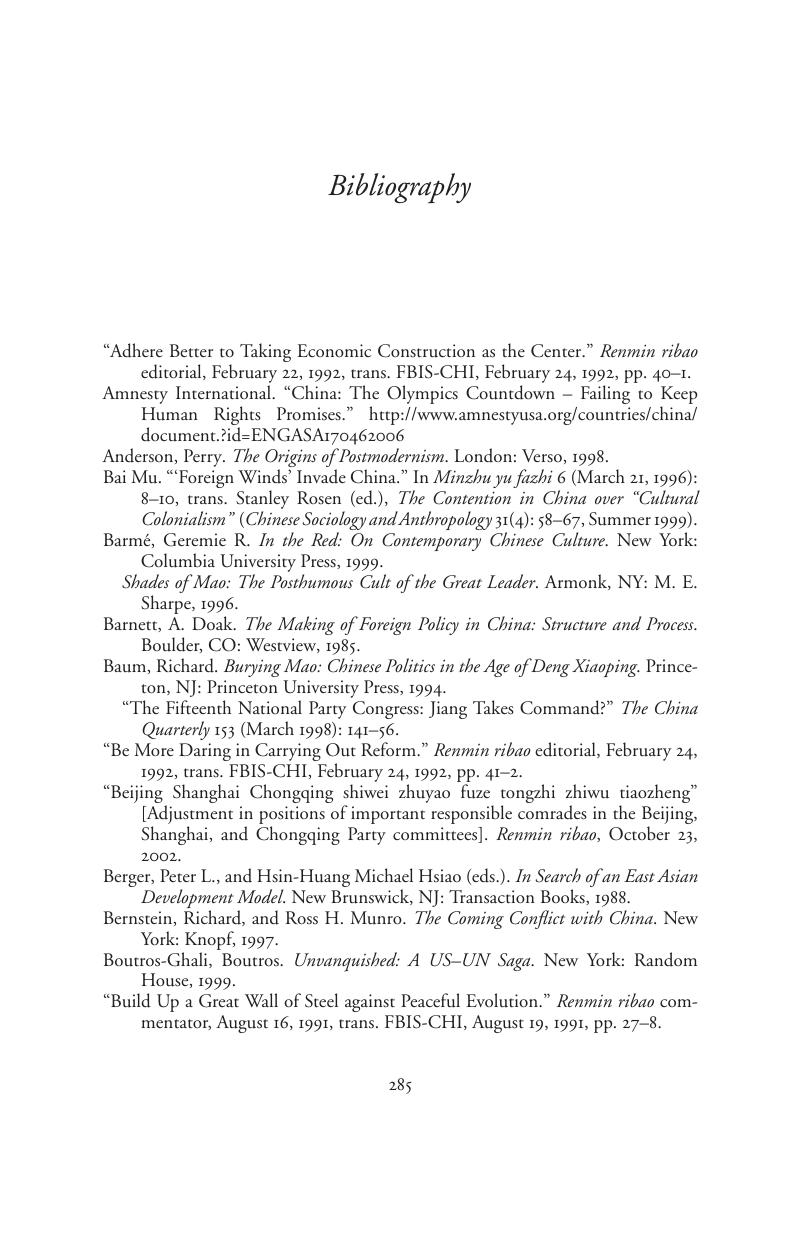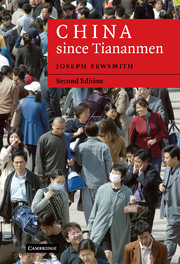Book contents
- Frontmatter
- Contents
- Acknowledgments
- Chronology
- Schematic overview of the Chinese political spectrum
- List of abbreviations and tables
- Introduction
- PART I LINE STRUGGLE REVISITED: THE ATTACK ON DENG'S REFORM PROGRAM
- PART II REDEFINING REFORM: THE SEARCH FOR A NEW WAY
- PART III ELITE POLITICS AND POPULAR NATIONALISM
- PART IV A NEW ERA IN CHINESE POLITICS
- Conclusion
- Epilogue: the Seventeenth Party Congress
- Bibliography
- Index
- Cambridge Modern China Series
- References
Bibliography
Published online by Cambridge University Press: 05 September 2012
- Frontmatter
- Contents
- Acknowledgments
- Chronology
- Schematic overview of the Chinese political spectrum
- List of abbreviations and tables
- Introduction
- PART I LINE STRUGGLE REVISITED: THE ATTACK ON DENG'S REFORM PROGRAM
- PART II REDEFINING REFORM: THE SEARCH FOR A NEW WAY
- PART III ELITE POLITICS AND POPULAR NATIONALISM
- PART IV A NEW ERA IN CHINESE POLITICS
- Conclusion
- Epilogue: the Seventeenth Party Congress
- Bibliography
- Index
- Cambridge Modern China Series
- References
Summary

- Type
- Chapter
- Information
- China since TiananmenFrom Deng Xiaoping to Hu Jintao, pp. 285 - 324Publisher: Cambridge University PressPrint publication year: 2008



